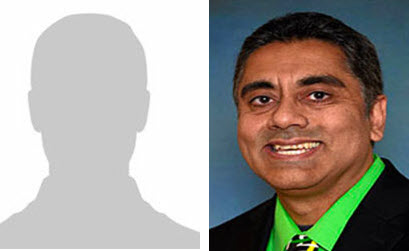Abstract
Excerpted From: Jeffrey D. Hoagland and Vinay Harpalani, Original Intent, Racial Equality, and the Conundrums of “Colorblindness”, 83 Maryland Law Review 231 (2023) (87 Footnotes) (Full Document)
 With its consolidated opinion in Students for Fair Admissions v. President & Fellows of Harvard College and Students for Fair Admissions v. University of North Carolina, the U.S. Supreme Court effectively ended the use of race in university admissions. In these cases, one sees a recurring constitutional and political narrative. Both parties advanced originalist legal arguments and appealed to notions of racial equality to illuminate the meaning of the Fourteenth Amendment. This interplay between originalism and equality is deeply rooted not only in American law, but also in politics. It played a prominent role at another polarized period in American history: 165 years ago, when Abraham Lincoln and Stephen Douglas held a series of debates in 1858, during the Illinois Senate race. Lincoln and Douglas appealed to the original intent of the Founders and made claims about the equality of Black Americans, defining their own visions of federalism in the process. The Supreme Court loomed over these debates, as the 1857 decision in Dred Scott v. Sandford, along with the specter of a future pro-slavery ruling, shaped the debate on racial equality. Across time and space, American constitutional and political discourse on race has tied together originalism and equality, along with notions of federalism, to define debates over the legal boundaries of government racial classifications.
With its consolidated opinion in Students for Fair Admissions v. President & Fellows of Harvard College and Students for Fair Admissions v. University of North Carolina, the U.S. Supreme Court effectively ended the use of race in university admissions. In these cases, one sees a recurring constitutional and political narrative. Both parties advanced originalist legal arguments and appealed to notions of racial equality to illuminate the meaning of the Fourteenth Amendment. This interplay between originalism and equality is deeply rooted not only in American law, but also in politics. It played a prominent role at another polarized period in American history: 165 years ago, when Abraham Lincoln and Stephen Douglas held a series of debates in 1858, during the Illinois Senate race. Lincoln and Douglas appealed to the original intent of the Founders and made claims about the equality of Black Americans, defining their own visions of federalism in the process. The Supreme Court loomed over these debates, as the 1857 decision in Dred Scott v. Sandford, along with the specter of a future pro-slavery ruling, shaped the debate on racial equality. Across time and space, American constitutional and political discourse on race has tied together originalism and equality, along with notions of federalism, to define debates over the legal boundaries of government racial classifications.
[. . .]
Certain constitutional and political narratives recur through charged debates in the public sphere. Although SFFA v. Harvard and the Lincoln-Douglas debates deal with very different issues, their rhetoric is uniquely American. Similar themes animate both: a concern for honoring original intent, the powers of the federal government and the states under various constitutional provisions, and the ideals of social and racial equality in our multicultural democracy. And both stand as pivotal moments in American history--flashpoints when Americans debated what it means to be a citizen of their constitutional democracy.
Jeffrey D. Hoagland, J.D., is Law Clerk to Judge Megan P. Duffy at the New Mexico Court of Appeals.
Vinay Harpalani, J.D., Ph.D., is the Don L. & Mabel F. Dickason Endowed Chair in Law and Professor of Law at the University of New Mexico School of Law.


